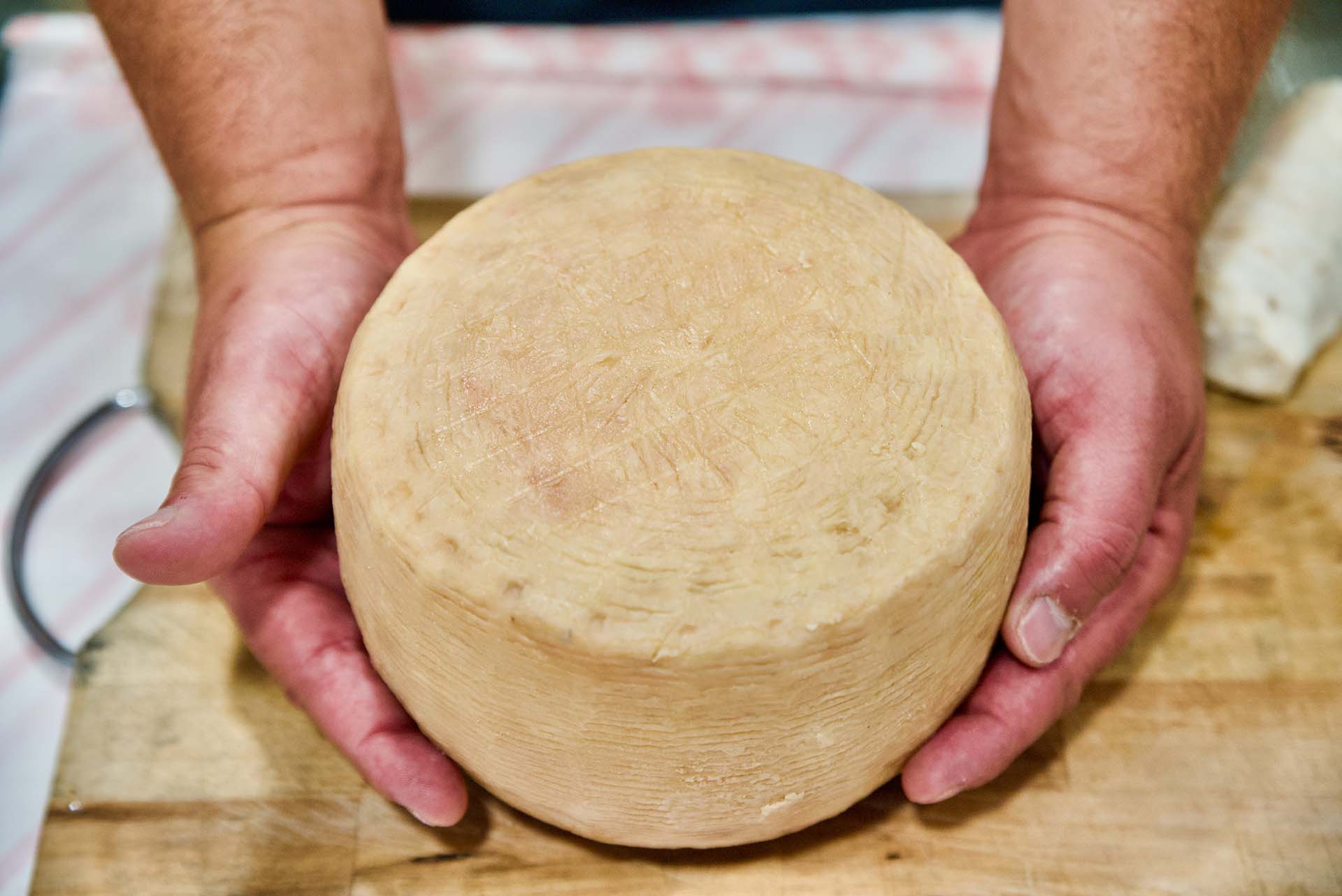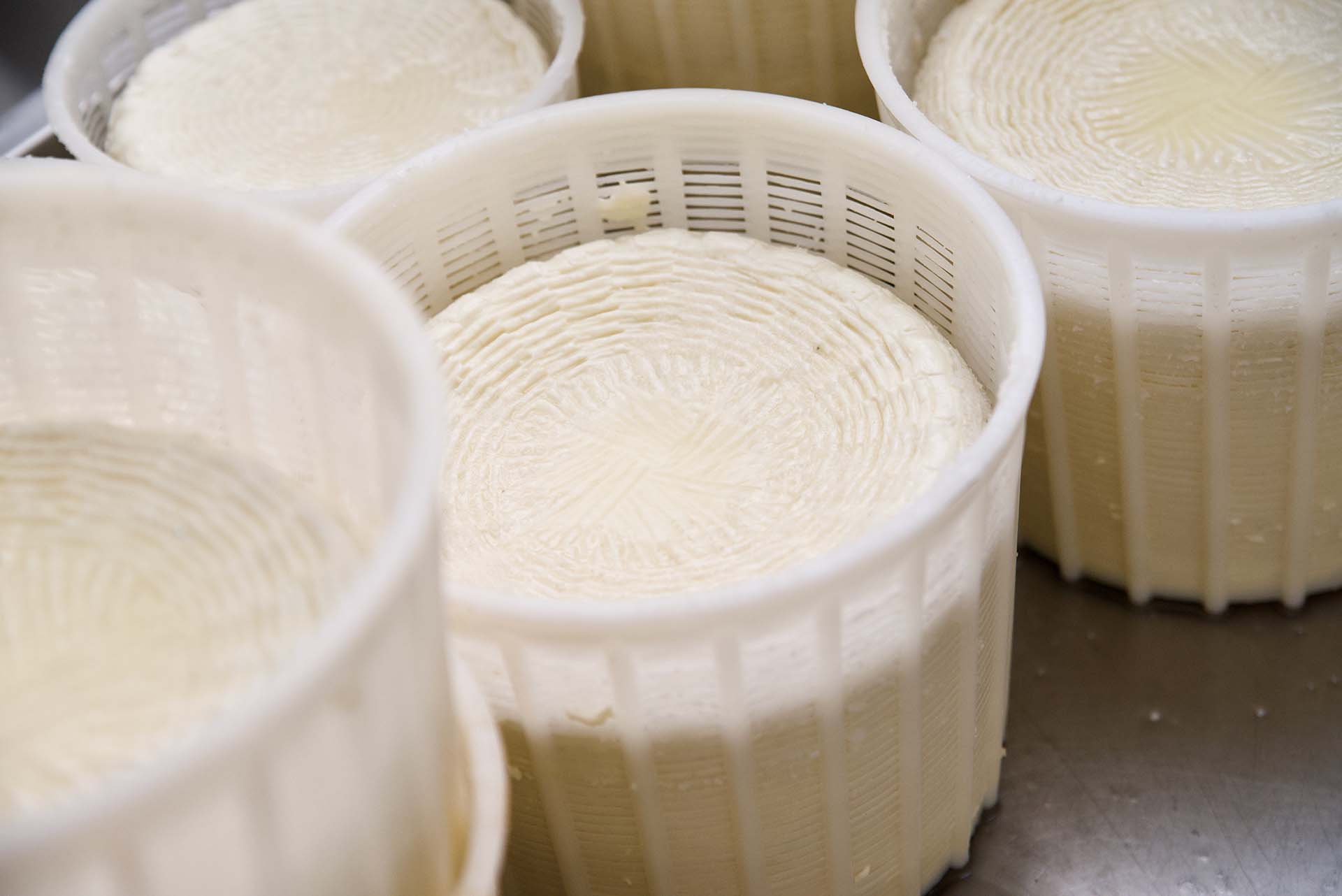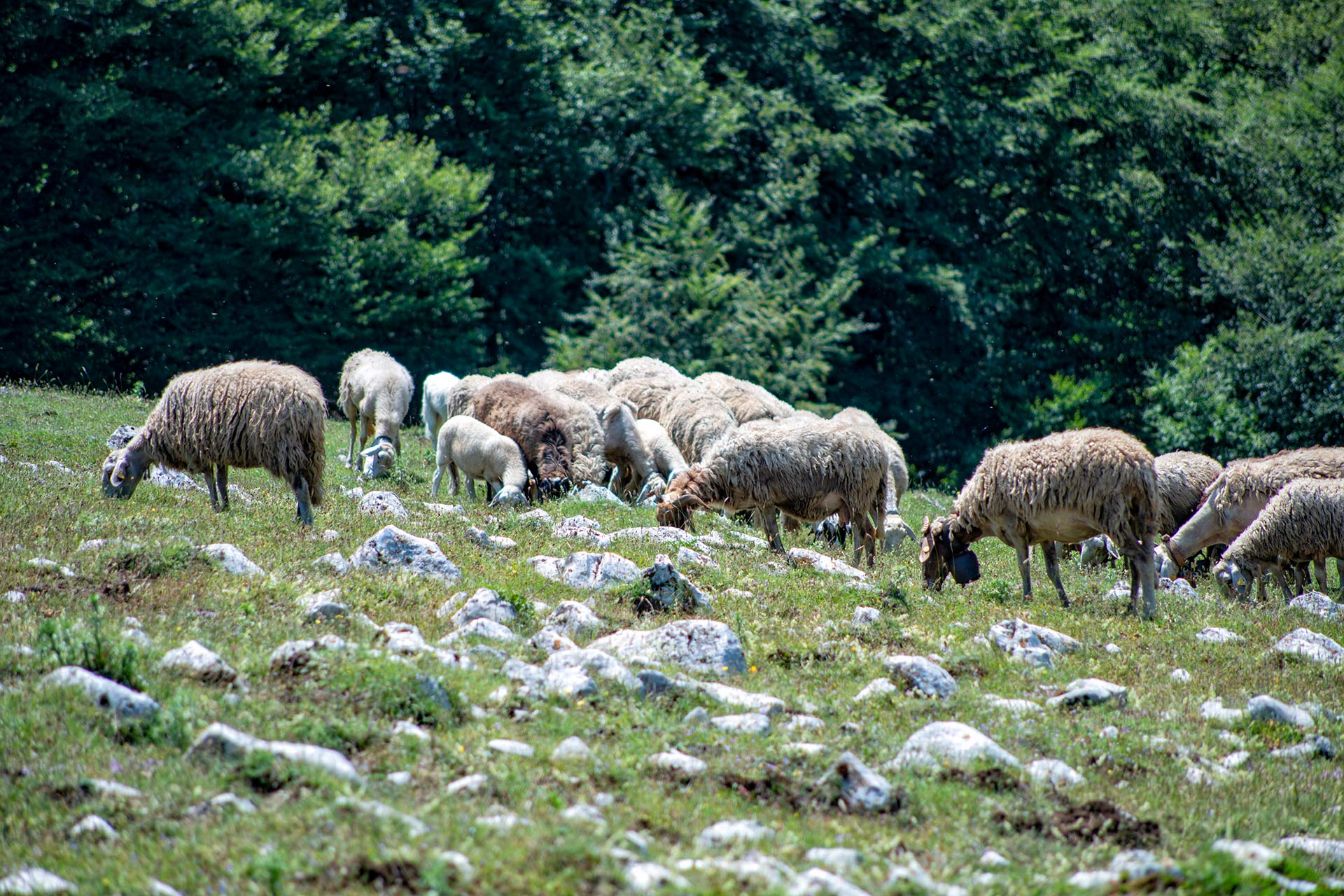The sense of smell is a safe guide through the small courtyard, which welcomes you with the bright red of the geraniums overlooking the square windows. The strongly scented trace and the curiosity that accompanies it lead to a side door, barely half-closed. There the aroma is more noticeable. A call, even urgent, to cross the threshold, to identify the origin and, especially, its nature. The first eye-catcher no longer leaves doubts: on a metal shelf there are inviting cheeses with a yellowish colour lined up, of different shades, evidently for different aging levels. Some of these cheeses have red dots.
Therefore spicy, as well as tasty. Considering that I am in Vitulano, it can only be the pecorino cheese, for which, in addition, this ancient village in the mountains of the the Dormiente del Sannio is renowned…

Two cheesemakers, with measured and confident gestures, are finishing filling the cheese-sieves with ricotta freshly processed. It is still hot, as it wouldn’t be possible to taste it elsewhere. Soft, white, the invitation to try it starts even before the introductions and it is honestly irresistible. After the sense of smell and the sight, even the taste finds its satisfaction in this small family-run cheese factory, where Antonio and his wife transform the milk that arrives twice a day from the mountain pastures.
Up there, there are the other members of the Calabrese family, who deal with the six hundreds goats in the business. Most of them of Bagnoli breed, native to Campania and excellent milk producer. These days, with the summer heat, the herd has been transferred to the Benevento hills, at a higher altitude, according the millennial rhythm of transhumance which here are inexorably renewed twice a year. Nature is dictating the rules for moving from one pasture to another and for production downstream. The sheep give more milk in spring and autumn and the activity of the cheese factories is adapted to the different seasonal quantities. Certainly and unmissable, there is the double daily appointment, in the morning and in the evening, which mobilises the whole family: the breeders in the meadows for milking and the cheesemakers in the village for the transformation into cheeses and ricotta.

Wherever the herd is, on the surrounding heights, the milk arrives in Vitulano as soon as it is milked. And it carries with it the innumerable aromas and flavours of freely grazed grass. The flavours change according to the seasons. Therefore, although the gestures that accompany the different phases of cheese making have always been the same since the beginning of human history, each cheese made by hand in the small laboratory of the village has something unique. For the milk, of course, but also for the rennet, rigorously natural, which shares its origin. And then there is the aging, in the air that freely circulates inside the laboratory. Cool also in summer, between the protective thick stone walls that shield the sun.
At least five months of rest are needed, before trying a Vitulano pecorino cheese. The aging can last up to a year and on the shelf there are shapes of all generations for a whole range of shades, from the creamy white of the very young cheeses, to the light brown of the most “rested”. Cheeses that tell of a fresh grass and of ancient knowledge. Of wild pastures, among the pale rocks of the welcoming Samnium land.



Comments powered by CComment